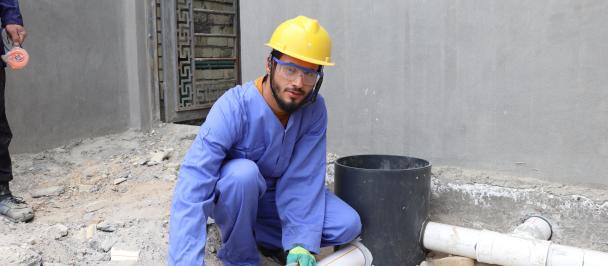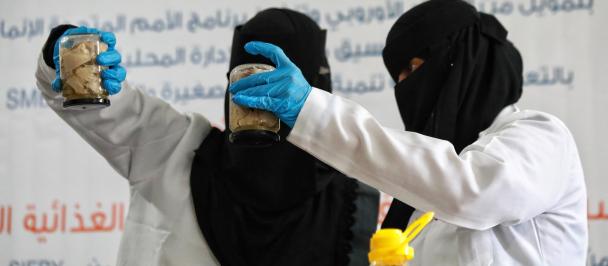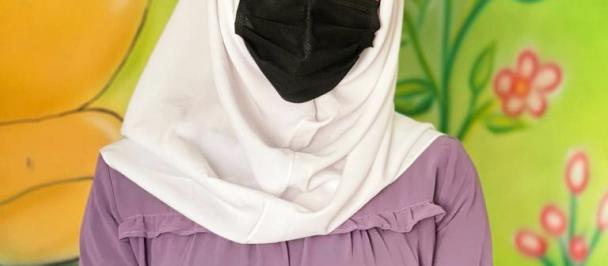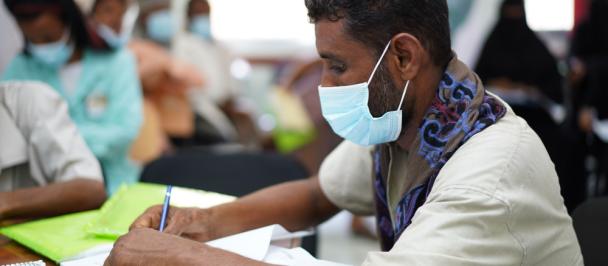How UNDP’s small business grants are bringing communities together in Iraq
Mohaned and AbuBakr’s journey to entrepreneurship
May 30, 2024
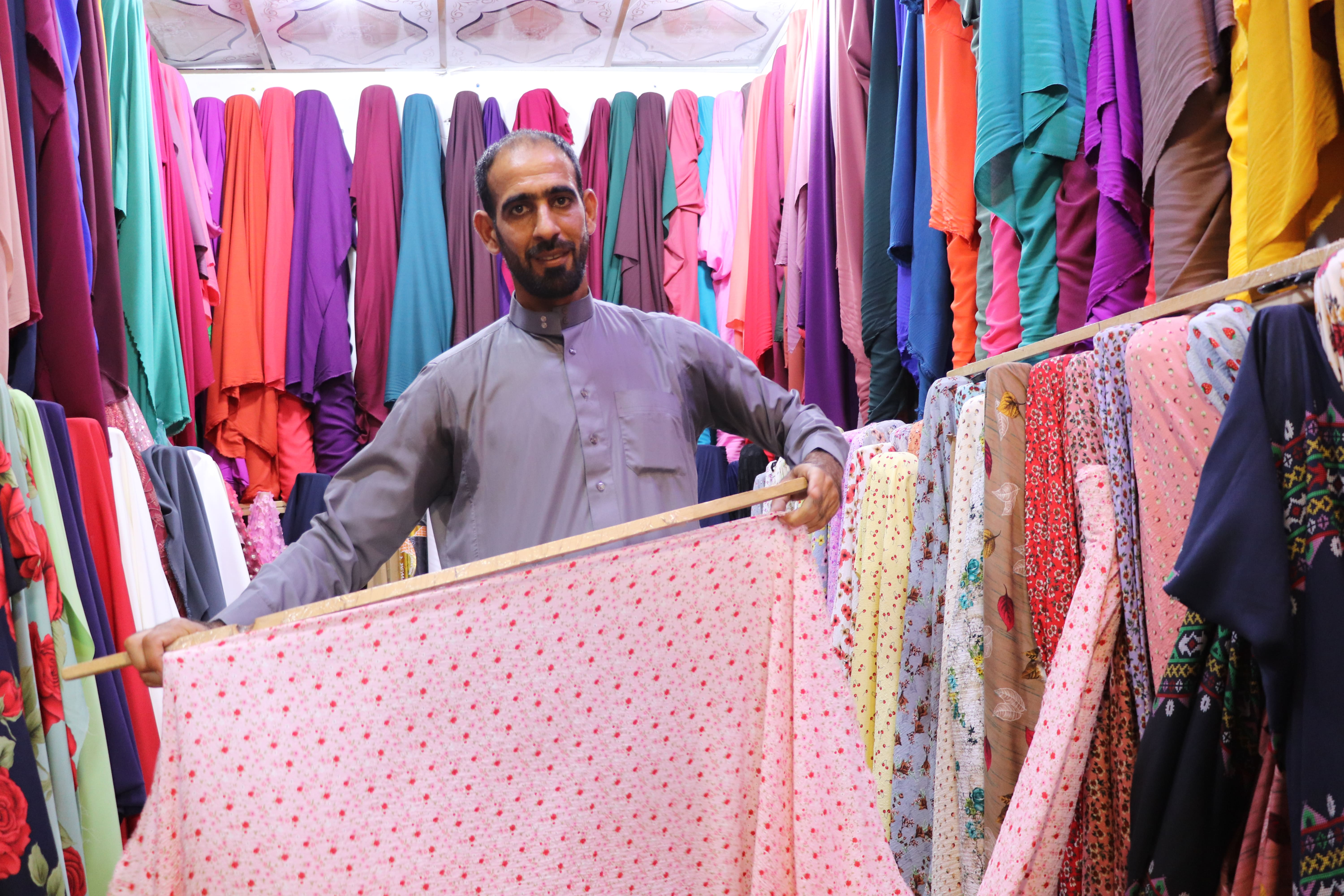
How UNDP’s small business grants are bringing communities together in Iraq
In Baquba, Diyala Governorate, on the east side of Baghdad, Mohaned likes to observe the street from his newly opened fabric shop. While in Fallujah, on the western side, Abu-Bakr stands tall, his gaze fixed on the towering internet towers he set up for his new internet business.
Though separated by miles, their stories are a flicker of hope spreading across the areas liberated from ISIL in Iraq. A flicker ignited by the United Nations Development Programme (UNDP) and its partner, Human Appeal through efforts to promote reintegration through livelihood support programmes.
A new fabric shop – Mohaned’s answered prayer
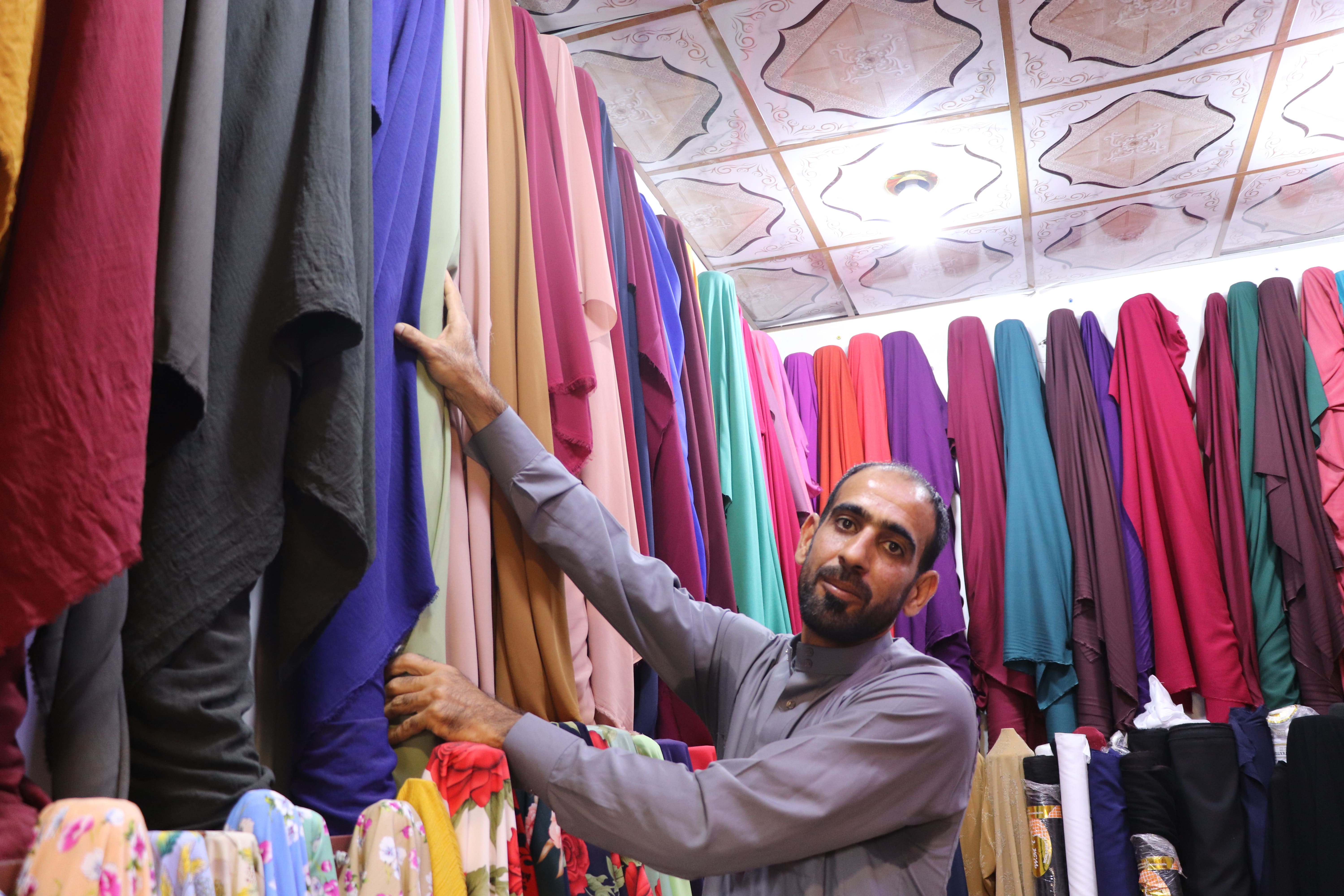
Baquba, Diyala Governorate - For Mohaned, the shop is an answered prayer for a steady source of income to provide for him and his family, including a wife and two disabled children. In 2014, he was displaced to Baquba from his beloved Abusaida due to the ISIL occupation, he never imagined life would ever be the same again. Relying on the community’s generosity and day jobs paying only $15, he struggled to support his young family.
He had always dreamt of starting his own business – preferably in agriculture – that is why he participated in the cash-for-work activity organised by the UNDP and Human Appeal in his town. However, it was the business training provided after that changed his life. Over the course of two weeks, he learned how to identify a profitable business, draft a business plan, and cost it, select a good location and market the business.
“While my dream was always agriculture, I realised that the business grant would not be enough to meet the costs, so I took up the second best option – a fabric shop,” he said.
Using the lessons learned during the training and the $2000 (2.9M IQD) business grant provided, he sourced fabric from Baghdad, identified a good location on one of the busiest streets in the town, paid rent and started his business.
“Although it's not booming yet, business is good,” he said. The 500,000 IQD ($345) he has earned in the last two months since opening the shop is a world of difference from the $18, he made as a day labourer. “I am very happy, this is the first time in a long time I have had a stable income to provide for my family,” he shared.
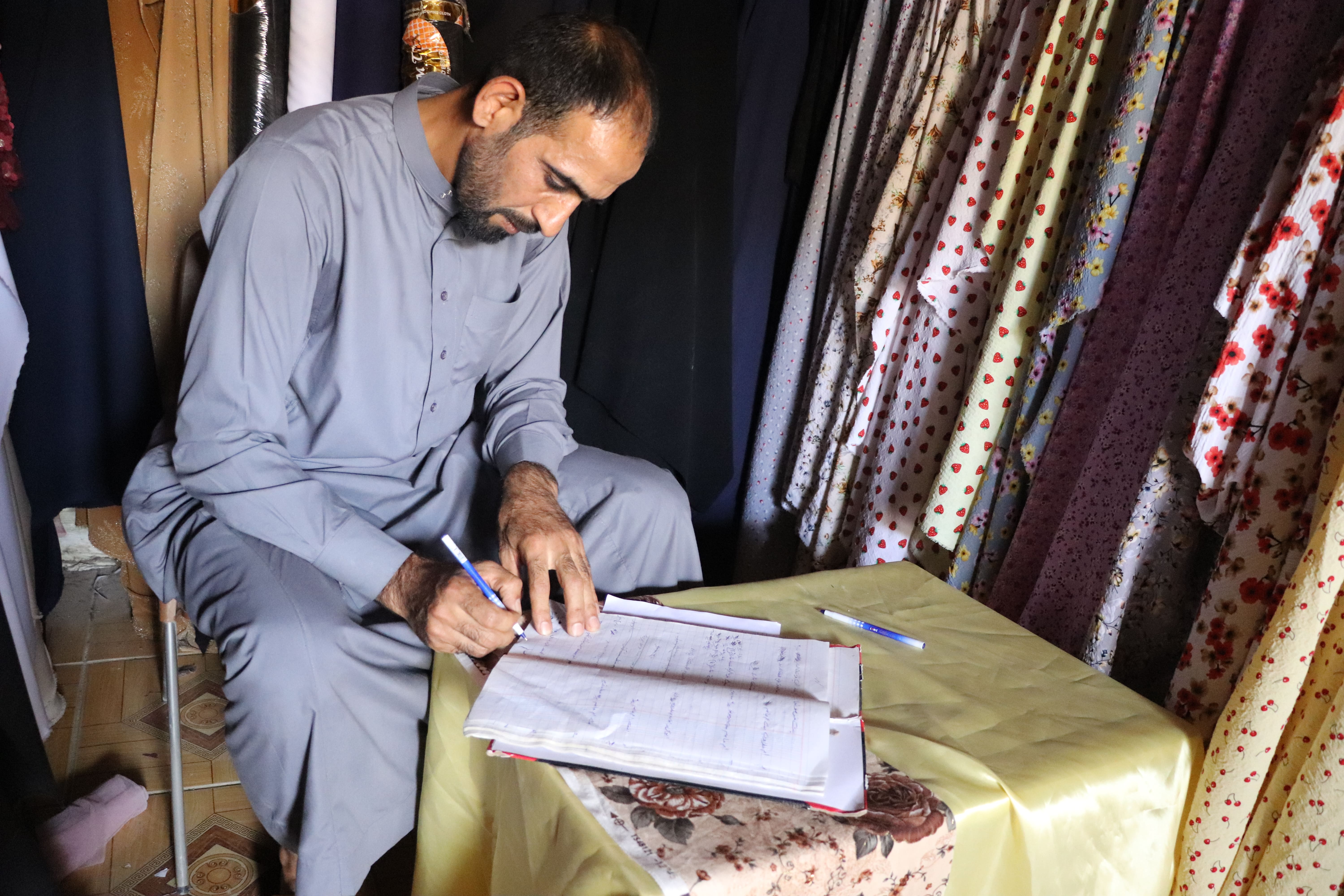
The activities also enhanced his social life – from the cash-for-work activities and the business training, he gained 40 new friends who he considers an integral part of his business network. A fellow participant who took a sewing course often reaches out to him for fabric – illustrating the bonds forms.
“When I initially arrived, people were kind to me, but now I can proudly say that acceptance has grown stronger,” he said. Explaining that their time during the public park rehabilitation was evidence of that as the different groups united to complete their tasks in time.
A new business idea gives Abu-Bakr a new start
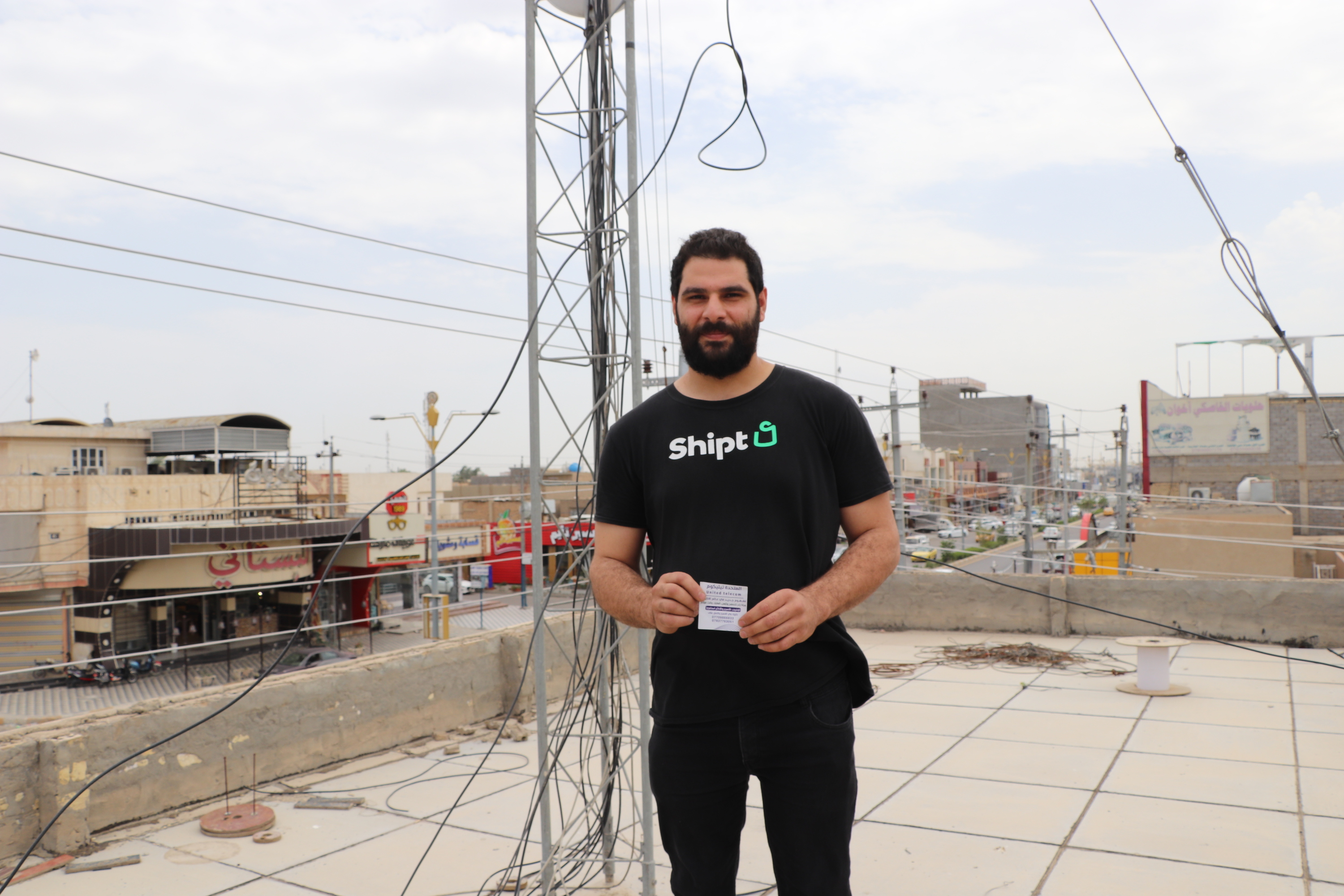
Fallujah, Anbar Governorate – For 30-year-old Abu-Bakr Bahaa Aldeen, one of the business skills training participants and business grant recipients, a new idea from a close friend to start an internet service business has given him a fresh start.
After sharing with a fellow trainee Karim who agreed to partner with him, the two set of to set up their first internet tower atop a building on a busy street in the centre of Fallujah. The recently completed tower covers up to two kilometres and can support 20 to 25 customers – so far, they have onboarded 12 customers, each paying 19,000 IQD ($13) monthly for internet services per month, generating a profit margin of 2000 IQD per customer.
“We have priced a little lower than the market so that we can attract customers, this is something we learnt in the business training,” Abu-Bakr shared. They hope to triple this number when their second tower goes up in a month. Like Mohaned, this is the first time he has had a regular source of income.
Similar to many of UNDP’s activities in the areas of return, the training provided an opportunity for returnees, formerly displaced people, and host community members to meet work together regularly. Allowing them to re-establish old community bonds which were severed by the ISIL conflict.
“I used to be afraid to deal with people with perceived affiliations but now my fear is gone, the training helped me to realise that they are just people like me looking for opportunities to support their families,” Abu-Bakr shared, adding that community perspectives have changed for the better, even for women, who can now feel safe going out to work or shop on their own.
About this initiative Through its Community-Based Reconciliation and Reintegration in Iraq (C2RI) project – which is part of its Social Cohesion Programme, UNDP is supporting efforts to encourage return, reintegration, and social cohesion in Iraq’s liberated areas. Implemented in Kirkuk, Diyala, and Anbar Governates, the C2RI project has already impacted 170 beneficiaries, including 82 women across all the Governorates. With a target of reaching 9000 individuals in 2024, these efforts, supported by UNDP's Funding Window for Peacebuilding, are instrumental in laying the foundation for a peaceful and socially cohesive Iraqi society as the country embarks on its sustainable development journey.

 Locations
Locations